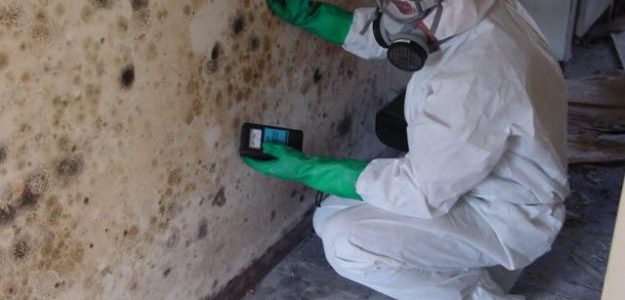Just because you’ve hired a contractor to remove the vinyl siding Charlotte, NC in your basement area doesn’t mean that you should sit back and let them do the work unsupervised. You have to oversee the process to make sure that the contractor inspects the mold first and that they apply the relevant health and safety measures while they work, in order to avoid inflicting damage to your property in the process.
Here are some steps to help you get an effective mold inspection:
Shop Around
Shop around before you hire a contractor and choose one that offers value for money, has relevant certification, experience and a positive reputation. If there are no testimonials on their site from past customers, ask the contractor to provide you with references as part of your background research.
In addition, the company you hire for the inspection and consultation should be different from the one that’ll be conducting the remedial process, so as to avoid a possible conflict of interest.
What You Need to Know
The inspection company should provide you with a two-part document. The first part of the document will consist of vinyl siding Charlotte, NC test results, which should come from an independent lab. The second part of the document will be an interpretation of those results as well as an inspection report that will inform you about the condition in which your property is in, as well as recommendations on how to fix the situation.
Ideally, you want an inspector who’ll be able to compile a report that’s comprehensive but straightforward and easy-to-understand. Keep in mind that the inspection company you’ve hired also plays the role of the consultant, and as such they should be able to provide you with their professional interpretation of the whole inspection after they’ve finished.
They should also be able to offer prompt service, accessibility when needed, reasonable rates, and an excellent report. If the report is drawn-out and has a lot of technical and bombastic terms that you don’t understand, then it’s more for the benefit of the inspection company, and doesn’t offer a lot of value to you as the client.
Most reports typically contain several disclaimers and disclosures that are designed to lengthen the document needlessly. Not only will such a report waste your time, but it will most likely be more expensive than a simple and straightforward report.
As the homeowner, all you need to know is whether or not you have a mold problem, what needs to be done to eradicate it, how much it’ll cost to fix, and how long the whole job will take. The mold inspector will let you know if you have a mold problem and what needs to be done about it, whereas a remedial company will tell you how much it’ll cost and how long it’ll take to get rid of the mold.
If you decide to take referrals for a remediation company from your inspection consultant, then make sure they give you several options to choose from, and the remediation company you choose should be able to supply you with their license and proof that they’re insured, which is very important since part of the remedial process involves taking apart certain sections of your house.
The Process
Essentially, the remediation company will start by sealing off the contaminated area, remove the siding Charlotte, NC and treat what remains of the area with some antimicrobial solution. Afterward, they’ll dispose of the moldy materials and treat the entire area with an air scrubber to eradicate any mold spores that might be floating around.
Once the job is complete, the inspection company that did the mold report will perform a post-remediation verification (PRV) test before the affected area is reconstructed, to confirm that the mold has indeed been eradicated. As an independent consultant, the inspection company will bill you separately for the PRV.
As for the source of the moisture that caused the mold to form in the first place, that should be handled by a professional plumber after the remedial company has finished. In the future, take appropriate measures to prevent moisture build-up that causes siding repair Charlotte, NC in order to avoid remedial costs.
